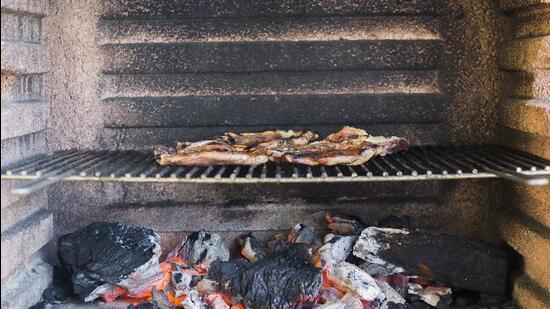HC directs MPCB to assess effects of charcoal on air quality
Following this, the BMC and the Public Health Department issued notices to bakeries, hotels, and other commercial establishments, mandating a transition to cleaner fuels by July 8, 2025, and prohibiting the use of wood, coal, and similar conventional fuels
Mumbai: The Bombay High Court on Monday directed the Maharashtra Pollution Control Board (MPCB) to assess the environmental impact of charcoal usage in bakeries, amid growing concerns over Mumbai’s deteriorating Air Quality Index (AQI). The court emphasised the need for a scientific evaluation and instructed the MPCB to determine whether charcoal is an approved fuel for bakeries.

The court initiated a suo motu case in response to the city’s worsening air pollution, previously criticising the Brihanmumbai Municipal Corporation (BMC) and environmental authorities for their inadequate pollution control measures. It had explored various solutions, including a potential ban on traditional bakeries using wood and coal-fired ‘bhattis,’ urging a shift to cleaner fuel alternatives.
Following this, the BMC and the Public Health Department issued notices to bakeries, hotels, and other commercial establishments, mandating a transition to cleaner fuels by July 8, 2025, and prohibiting the use of wood, coal, and similar conventional fuels.
The Bombay Charcoal Merchants Association (BCMA), representing charcoal suppliers to hotels and restaurants, challenged the BMC’s actions in court, alleging coercion. The BCMA argued that despite a January 9 court directive banning polluting fuels in traditional bakeries, the BMC misinterpreted the order and pressured licensed establishments to switch to alternative fuels.
“The state cannot arbitrarily restrict the livelihood of hoteliers and restaurateurs dependent on such ‘bhattis’ by compelling them to change fuels without valid justification,” the association contended.
The BCMA also refuted claims that charcoal is a major pollutant, citing the Delhi Pollution Control Committee’s standard fuel list, which includes charcoal as an approved fuel. The association’s counsel argued that imposing restrictions on charcoal would cause “irreparable harm” to businesses, adding that charcoal is carbon-neutral, absorbs carbon dioxide, and produces no fly ash.
A division bench comprising Chief Justice Alok Aradhe and Justice MS Karnik acknowledged the complexity of the issue, stating that an expert body must determine whether charcoal significantly contributes to pollution.
“We cannot decide whether charcoal is a polluting fuel. An expert body should examine this to avoid widespread confusion,” the bench observed. Recognising the MPCB as the appropriate authority, the court directed it to conduct a detailed evaluation of charcoal’s environmental impact.
While declining to grant immediate relief to the BCMA, the court emphasised that unchecked use of charcoal could exacerbate air pollution. It ordered the MPCB to review the matter and deliver its findings within two weeks, while also demanding a compliance report from the state government and MPCB on its previous directives within six weeks.
The next hearing is scheduled for April 21.
Stay updated with all the Breaking News and Latest News from Mumbai. Click here for comprehensive coverage of top Cities including Bengaluru, Delhi, Hyderabad, and more across India along with Stay informed on the latest happenings in World News.
Stay updated with all the Breaking News and Latest News from Mumbai. Click here for comprehensive coverage of top Cities including Bengaluru, Delhi, Hyderabad, and more across India along with Stay informed on the latest happenings in World News.






